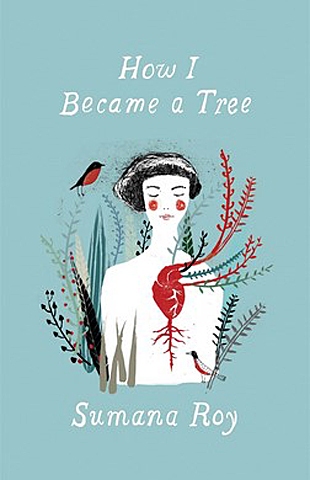“I’ve loved writing letters to my lover — they contained the most secretive part of me, one that I was ashamed to otherwise see manifest. In letters I was able to love unconscious of any gaze. This was also true of secret meetings, hide-and-seek, keeping and missing appointments. There are spaces that indulge this. But how was one to meet a tree who would not move out of its home? I compared it cruelly with relationships with the differently-abled and regretted it immediately. But curiosity was natural — I had seen the fixity of location affecting relationships between people. How could it not for plants? There was the other matter about privacy. Romantic love demands a tent if not a house. Imagine a tree inside a tent. End of Love Story. There is also the knock on the door, literal and metaphorical, that initiates or causes a temporary pause to the lovers’ actions and conversations. How can one visit a tree without needing to knock on the door? This uncertainty, the ambiguity between being welcome and being rebuffed, will always mark the life of a tree-human relationship. There is the chorus of I-want-my-space all around me — how am I to know whether I’m being intrusive?
“Possessiveness was the other worry. I have been a possessive lover. Plant life, by its very biological nature, does not understand monogamy. Loyalty is an alien concept, adultery an everyday thing. How would I adjust to this new world after year — centuries? — of social conditioning? There were also different kinds of love — a farmer’s love is not the same as a tourist’s. The farmer’s is also a gatekeeper’s life, sometimes like a spouse’s. In my relationship with strange and familiar trees, I was both. I now realize that this allowed me to love them like a tree, loving one and the many, the gardener and the admiring passer-by. Waking up beside a lover must count as one of the most rewarding experiences of being in a relationship. The person still asleep might receive an unexpected — unexpected because sleep is free of expectations — kiss on the eyelids, the closed eyes. How was one to inaugurate such a day with a tree? Films had invented a rather cute stand-in for this — kissing flower buds that open into flowers. But a kiss demands reciprocity. There is nothing more cruel than a one-sided kiss. You look for the 'face' of the tree, hoping it will turn towards you like a human lover. But it has no 'face.' Since love is based on exchange, you might wait for the tree’s saliva, some evidence that would ratify the pantomime of lust. Here there is none.
“… I once asked a male friend whether he’d like to have a tree as a mate. He replied with a joke, using the laboured example of a wife’s nagging. Trees have no memory, not of pain, neither of pleasure. It is this that makes them tabula rasas — they are lovers like no other. History here was unchangeably one-sided — the lover remembers the tree, the tree doesn’t remember her at all. Conditioned as we are to memory — of birthdays, good days, bad days — being a great seismograph in relationships, it would be both exciting and frustrating to return to a new lover every evening, an old lover with whom one must begin anew with every meeting. And I suddenly found myself becoming completely accepting of this, I who never forget to remind my husband about his forgetfulness about birthdays and anniversaries.”
